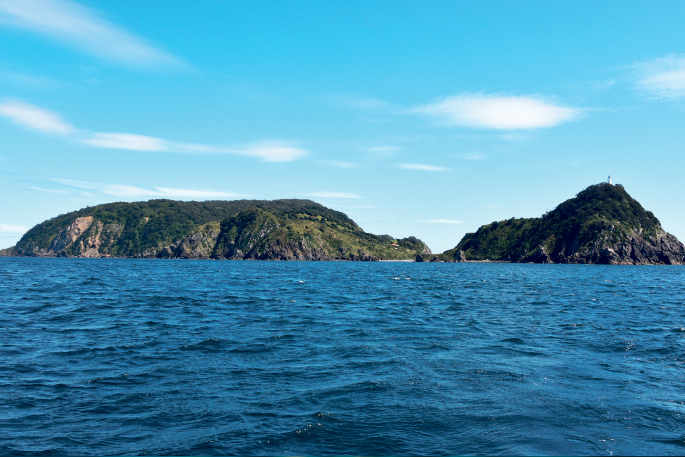Unfortunately, Nigel had been on a diet of lizards, insects, eggs and chicks - all of the native variety. He revealed himself after lunching on an avocado belonging to some hard-working researchers. We don’t know how he got there. Maybe he arrived on a log, swam from the mainland or jumped off a passing boat, but the devastation he has caused must be huge.
The Islands of the Coromandel Peninsula are a vital haven for native wildlife. They provide sanctuaries for species that are extinct on the mainland and are defendable from the pressures of pests like Nigel. However, the biggest threat to our islands comes from man, and unfortunately us boaties are the biggest culprits.
By now, boaties should know to check their vessels and gear for stowaways, and it makes sense with most insurers not covering damage from rodents. But we also need to check for Rainbow skinks, Argentine ants and seeds that may be in your gear. These compete with our native flora and fauna and often win, as our native’s species are not used to the competition.
We do not allow people to land on most of the islands because of the risk of incursion. Occasionally we have scientists on the islands along with DOC staff. Specially trained dogs also visit to monitor the habitats and ensure Nigel doesn’t have any mates.
With thanks to Sir Michael Fay and David Richwhite, you can visit Great Mercury Island - a pest-free island - and appreciate the ever-increasing birdlife. This year areas have been roped off where Dotterels are likely to nest. There are about 2200 dotterels in New Zealand, making them more at risk than some species of kiwis. If you see a dotterel feigning injury, dragging a wing as if it is broken, it has a nest or chicks nearby.
Please move away from the area quickly, as birds will not return to care for the eggs or chicks until you have gone.
Under ideal circumstances Dotterels will lay three eggs.
Although dogs are allowed on the beaches at GMI, they must be kept under strict supervision. If you come across any wildlife:
• Put your dog on a lead and lead your dog away immediately.
• Warn other dog owners at the location.
• Notify DOC if you see wildlife being harassed by people or dogs or if you see any pests. They can be reached on 0800 362 468.



0 Comments
Leave a Comment